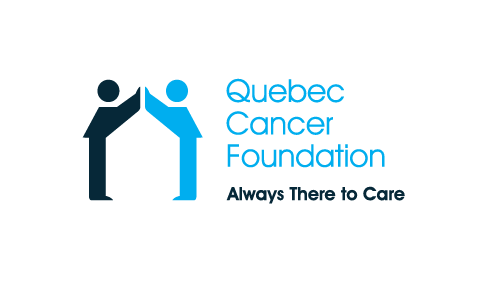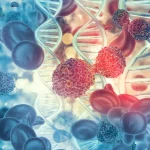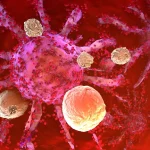Sexuality
Cancer treatments generally have a disruptive effect on sexual activity. Usually this is a temporary situation. Fertility and reproductive performance, however, may be compromised permanently.
Note that certain treatments, such as surgical or radiotherapy interventions on the reproductive organs, have specific side effects that are not dealt with in this section.
Side effects associated with chemotherapy
In general, chemotherapy disrupts the reproductive functions in both men and women.
In women, there is often an irregularity of the menstrual cycle and even an interruption of menses or the onset of hot flashes, especially upon the approach of menopause. However, pregnancy is still possible. Women should not plan to become pregnant during chemotherapy and should therefore use adequate contraception. Women of childbearing age should talk with a member of the medical team about the choice of contraceptive method to be used during treatment, about family planning, and about fertility preservation, if indicated. In most cases, once the chemotherapy is completed, the menstrual cycle will return to normal, and a normal pregnancy may be envisaged, as advised by the physician.
In men, there is a decrease in sperm count; endurance is also diminished. This decreased fertility in no way hinders attaining erection and engaging in sexual activity.
Some chemotherapy may permanently compromise fertility. Contraception and means of preserving fertility should be discussed with a member of the treatment team.
Chemotherapy can therefore affect the fertility of both women and men, but does not compromise the ability to have sex.
WARNING!
When receiving chemotherapy, blood and body fluids, including vaginal secretions and semen, become temporarily toxic. This condition can last for up to four days after receiving the drug (chemo). Consequently, condom use is highly recommended when having sex at such times.
Generally, libido (sexual desire) is affected throughout the chemotherapy and may continue some time afterwards, due to various proven side effects. However, at the end of treatment, when the individual feels better and the side effects have faded or disappeared, desire usually reverts to its usual level.
Remember that the mere physical presence of someone receiving chemotherapy or external beam radiation is not dangerous.
There is no danger related to hugging and kissing a person receiving chemotherapy or external beam radiation therapy.
Do not hesitate to ask for help with any concerns you may have related to sexuality. The treatment team will be able to provide you with adequate information or recommend appropriate professional help, as needed.
Fertility
See Section Fertilité: démarches à faire pour la préserver (avant le traitment). (French only)































